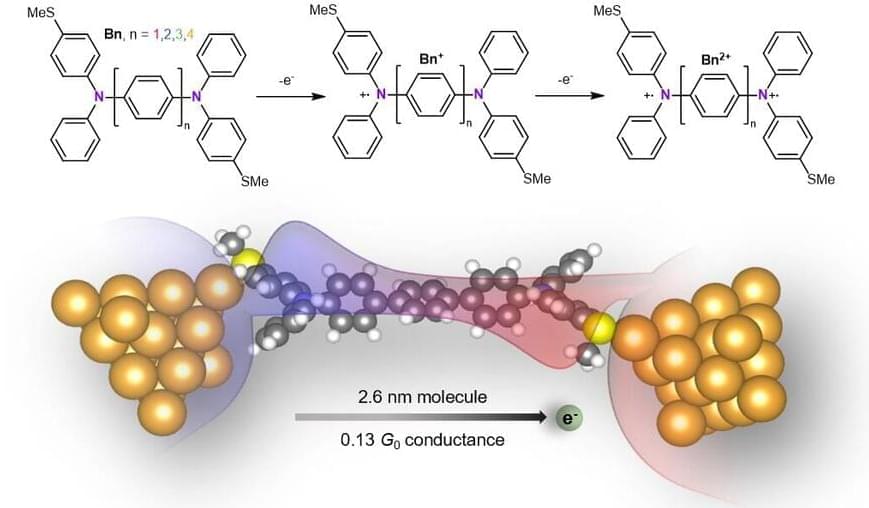As our devices get smaller and smaller, the use of molecules as the main components in electronic circuitry is becoming ever more critical. Over the past 10 years, researchers have been trying to use single molecules as conducting wires because of their small scale, distinct electronic characteristics, and high tunability. But in most molecular wires, as the length of the wire increases, the efficiency by which electrons are transmitted across the wire decreases exponentially. This limitation has made it especially challenging to build a long molecular wire—one that is much longer than a nanometer—that actually conducts electricity well.
Columbia researchers announced today that they have built a nanowire that is 2.6 nanometers long, shows an unusual increase in conductance as the wire length increases, and has quasi-metallic properties. Its excellent conductivity holds great promise for the field of molecular electronics, enabling electronic devices to become even tinier. The study is published today in Nature Chemistry.










Comments are closed.